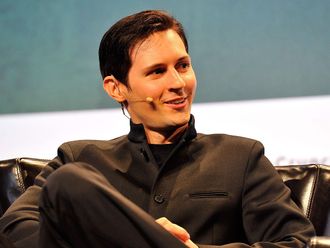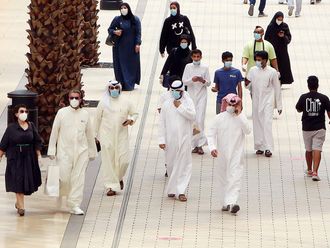St Petersburg: An ally of Prime Minister Vladimir Putin is on course to become the speaker of Russia's upper house of parliament after a landslide victory in a regional election denounced by the opposition as fraudulent.
St Petersburg Governor Valentina Matviyenko, 62, won more than 95 per cent of ballots cast in each of the two municipalities in Russia's second city, which voted for a single seat on Sunday in the Federation Council.
President Dmitry Medvedev has backed Matviyenko to take over the vacant position of head of the Federation Council, but she had to secure a seat in the upper chamber to be eligible for the job.
Matviyenko still faces an election in the Federation Council before becoming the first woman to lead the upper house, a 166-seat chamber comprising regional representatives, but the Kremlin's support makes her victory likely.
Political analysts said moving Matviyenko into a new job may be intended to help win more votes for Putin's United Russia in St Petersburg in a parliamentary election in December because she had faced criticism from local voters.
The move also appears intended to ensure the loyalty of the Federation Council speaker, the third-ranking job in Russia under the constitution, before the parliamentary election and a presidential vote in March.
United Russia engineered the removal of speaker Sergei Mironov, head of the Just Russia party, in May in a sign that Putin's party had lost faith in him even though he was long considered loyal to the prime minister.
Boris Nemtsov, an opposition leader, said Sunday's vote was unfair because only candidates loyal to Matviyenko had been able to run against her and police had detained government critics who protested during the election.
"This is a 100 per cent fraud, not a vote," Nemtsov wrote in his Livejournal blog.
The huge margin of victory — officials results showed she won more than 95 per cent and just over 97 per cent of votes in the two municipalities — is extremely unusual for St Petersburg.
Matviyenko had angered residents of the imperial-era capital by backing plans, scrapped last year, to build a 403-metre skyscraper to house the headquarters of state-controlled gas giant Gazprom near the historic city centre.
In office since 2003, she had also been criticised over deaths and injuries from ice falling from rooftops in winter.












